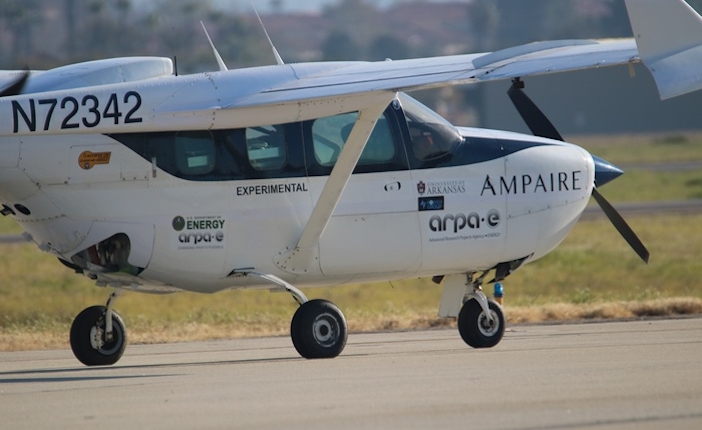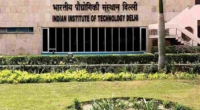Researchers from the University of Arkansas and Ampaire have conducted a successful flight test of an electric motor drive on a hybrid-electric aircraft for the ARPA-e project. The project is part of ARPA-e’s goal to develop and validate transformative technologies that could change the way we travel in the future. The University of Arkansas team, along with Ampaire, optimized the design of the electrical-thermal-mechanical-control systems, which has major implications for the electrification of transportation vehicles. The successful flight test of the University of Arkansas motor drive on a hybrid-electric aircraft marks a significant achievement in the field of electric aviation technology. The project will pave the way for more electric aviation technologies to be tested in the future, such as circuit breakers, inverters, motors, power distribution systems, batteries, fuel cells, and high-efficiency combustion engines. Ampaire plans to conduct additional test flights to collect data for improving future designs.
US Researchers Successfully Flight Test Optimized Electric Drive for Hybrid Aircraft
Researchers from the University of Arkansas have made a significant breakthrough in the electric aviation field, having conducted a successful test flight of an electric motor drive for a hybrid-electric aircraft as part of the ARPA-e project. The flight, which took place on February 20th from the Camarillo airport near Los Angeles, used a modified Cessna 337 plane after 18 months of ground testing.
The aircraft featured a 250-kilowatt motor drive powering a rear electrical engine in the hybrid electric aircraft testbed. Working in combination with a gasoline-powered engine in the front of the aircraft, the rear electrical engine propelled the aircraft during taxiing, takeoff, cruising, and landing.
The project, funded by the US Department of Energy’s Advanced Research Projects Agency (ARPA-e), marks a significant milestone in electric aviation technology. It is the first piece of new technology developed under the program that has been successfully flight-tested.
Isik Kizilyalli, the ARPA-e associate director for technology, emphasized the importance of testing transformative electric aviation technologies in real-world environments. Doing so enables validation of the technology in real-world conditions, greatly accelerating the adoption of the technology.
The University of Arkansas motor drive is the first of many electric aviation technologies that will be tested in flight. These include circuit breakers, inverters, motors, power distribution systems, batteries, fuel cells, and even high-efficiency combustion engines. The agency aims to electrify aircraft and usher in a more electrified future.
The University of Arkansas team, led by Professor of Electrical Engineering and Executive Director of the National Center for Reliable Electric Power Transmission (NCREPT) Alan Mantooth, optimized the design of the electrical-thermal-mechanical-control systems. This has major implications for the electrification of transportation vehicles, whether they be planes, trains, automobiles, heavy equipment, ships, or drones.
The project also involved engineers from the University of Illinois, who focused on thermal-management design, as well as Ampaire, a company that specializes in electric aircraft. Ampaire helped with environmental testing requirements, necessary to qualify and validate the motor drive’s performance and reliability on a pathway to test flight.
Silicon-carbide semiconductor maker Wolfspeed contributed commercial power modules and integration expertise for the electronic motor drive. Additional test flights will be conducted by Ampaire to collect data for improving future designs.
The successful flight test of the University of Arkansas motor drive on a hybrid-electric aircraft marks a significant achievement in the field of electric aviation technology. The project is part of ARPA-e’s goal to develop and validate transformative technologies that could change the way we travel in the future.
Ampaire’s Chief Technology Officer and Vice President of Engineering, Ed Lovelace, expressed the significance of the flying testbed capability in evaluating emerging technology in a relevant environment. He stated that successfully evaluated technologies can become part of Ampaire’s commercial electrified aviation product roadmap, offering greater capabilities.
Don’t miss interesting posts on Famousbio










